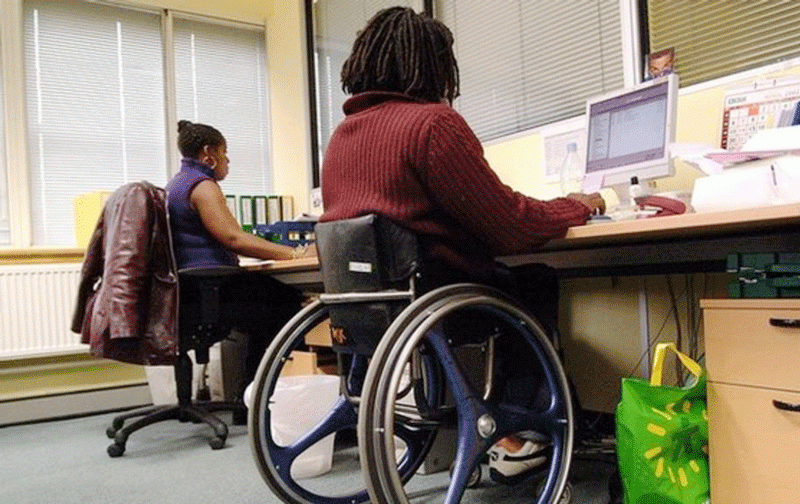
Approximately, 15% of the world's population, or one billion people identify as people with disability (PWD) and the prevalence of disabilities is higher in developing nations.
Adverse socio-economic outcomes, including lower levels of schooling, poor health, lower employment rates and higher rates of poverty, are more common among people with impairments.
The risk of disability can be elevated by poverty in several ways including poor access to health care and education, unsafe working conditions, a contaminated environment, and a lack of clean water and sanitary facilities.
Due to reduced employment and educational prospects, lower wages, and higher living expenses, disabilities may potentially raise the likelihood of poverty.
Complete social and economic integration of PWDs is hampered by inaccessible physical spaces and modes of transportation, a lack of assistive technologies and devices, communication methods that are not modified, gaps in the provision of services, stigma and discrimination in the community.
Nonetheless, governments across the globe are embracing the concept of disability-inclusive development.
This is because the complete integration of PWDs into society is encouraged by the 185 nations that have ratified the United Nations Convention on the Rights of Persons with Disabilities (CRPD).
The significance of the international community in addressing the rights of PWDs is explicitly mentioned in the CRPD.
- Letters: PWDs remain susceptible to abuse
- Disability advocates push for equal participation in politics
- Call for PWDs inclusion in electoral processes
- New Horizon: Attitude a major barrier for achieving disability inclusion
Keep Reading
As disability cannot be a justification or criterion for being denied access to development initiatives and the enjoyment of human rights.
Consequentially, seven targets in the Sustainable Development Goals (SDGs) framework specifically mention PWDs, while six more targets focus on people in vulnerable situations, which includes PWDs
Zimbabwe being a member of the global community has made positive strides in addressing the plight of PWDs by ratifying the CRPD and launching the ZNDP in 2021.
Currently, the government is in the process of repealing the Disabled Persons Act (17:01) of 1992 and move away from the charity based approach (CBA) to the rights based approach (RBA) in dealing with PWDs.
While Zimbabwe`s efforts are commendable there are operational and governance glitches that need immediate redress if the nation is to attain an inclusive and comprehensive upper middle-class economy by 2030.
This is because there are infrastructure and institutional gaps when it comes to dealing with PWDs.
The entire public sector needs to be revamped and recalibrated to advance the interest of PWDs.
Thus, a comprehensive needs assessment must be undertaken utilizing several data sources such as Zimbabwe National Statistics Agency (ZimStat), CSOs, Unicef and development partners.
The data sources must provide adequate information on the following PWD’s dimensions:
Prevalence of disability: that is to provide estimates of the number and percentage of PWDs in Zimbabwe.
Type of disability: that is to provide data on the types of disabilities, such as visual, hearing, mobility, and mental disabilities.
Age and sex distribution: that is to provide data on the age and sex distribution of PWDs.
Education and employment: that is to provide data on the educational attainment and employment status of PWDs.
Access to healthcare and social services: that is to provide data on the access to healthcare, social services, and assistive devices among PWDs. -Zimbabwe Coalition on Debt and Development










